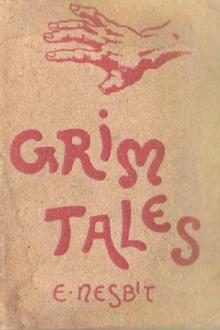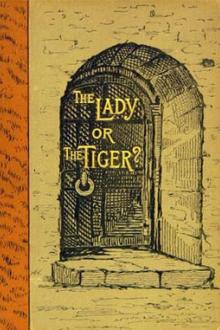Genre Short Story. Page - 5

sary labours to the officers of the ship, and the soldiers,who had made uncommon exertions. Roused by a sense of theirdanger, the same seamen, at this moment, in frantic exclamations,demanded of heaven and their fellow-sufferers that succour whichtheir own efforts, timely made, might possibly have procured.
'The ship continued to beat on the rocks; and soon bilging, fellwith her broadside towards the shore. When she struck, a number ofthe men climbed up the ensign-staff, under an apprehension of herimmediately going to pieces.
'Mr. Meriton, at this crisis, offered to these unhappy beings thebest advice which could be given; he recommended that all shouldcome to the side of the ship lying lowest on the rocks, and singlyto take the opportunities which might then offer, of escaping tothe shore.
'Having thus provided, to the utmost of his power, for the safetyof the desponding crew, he returned to the round-house, where, bythis time, all the passengers and most of the officers hadassemble

t of the French nobility whose family had ridden the tumbrils of the Revolution, tended her fragile body and spirit with the same loving care given rare, brief-blooming flowers. You may imagine from this his attitude concerning marriage. He lived in terror of the vulgar, heavy-handed man who would one day win my mother's heart, and at last, this persistent dread killed him. His concern was unnecessary, however, for my mother chose a suitor who was as free of mundane brutality as a husband could be. Her choice was Dauphin, a remarkable white cat which strayed onto the estate shortly after his death.
Dauphin was an unusually large Angora, and his ability to speak in cultured French, English, and Italian was sufficient to cause my mother to adopt him as a household pet. It did not take long for her to realize that Dauphin deserved a higher status, and he became her friend, protector, and confidante. He never spoke of his origin, nor where he had acquired the classical education which made him such an entertaining companion. After two years, it was eas

He was waiting for her, he had been waiting an hour and a half in a dusty suburban lane, with a row of big elms on one side and some eligible building sites on the other--and far away to the south-west the twinkling yellow lights of the Crystal Palace. It was not quite like a country lane, for it had a pavement and lamp-posts, but it was not a bad place for a meeting all the same: and farther up, towards the cemetery, it was really quite rural, and almost pretty, especially in twilight. But twilight had long deepened into the night, and still he waited. He loved her, and he was engaged to be married to her, with the complete disapproval of every reasonable person who had been consulted. And this half-clandestine meeting was tonight to take the place of the grudgingly sanctioned weekly interview-because a certain rich uncle was visiting at her house, and her mother was not the woman to acknowledge to a moneyed uncle, who might "go off" any day, a match so deeply ineligible as hers with him.
So he waited for her, and the chill of an unusually severe May evening entered into his bones.
The policeman

rd, moustache, and eyebrows were dyed black (washable dye, of course). My skin was a good tawny brown, and I had on a check suit that was a chess-knut in every sense of the word; also a crush hat, and spats on my boots. I was the American conception of a certain type of English tourist. God help the type. They would need it.
I called in at a book-shop, and bought a 'Frisco guide, one of those pretty little flip-flap things that ripple out a fathom long, all pictures of Telegraph Hill and the water front and the ferry boats, with glimpses of the bay and a "peep at Oakland"; not forgetting even the mud flats across the bay, where the wind-jammers used to lie up by the dozen and wait for a rise in the grain freights.
Then I made a line for the water front, with my "guide" draped over my hands, staring at it like a five year old laddie.
Presently, as I went along, I stopped outside the Chinaman's shop. I stared in at the lacquer boxes; the bamboo walking sticks, the josses, .... Birmingham de

Joel gently shoved his gun barrels across the log, cuddling the stock to his shoulder and slipping two fingers caressingly back and forth upon the triggers. Jake held the narrow dugout steady by a grip upon a fox-grape tendril.
A little wait and then the finish came!
Fishhead emerged from the cabin door and came down the narrow footpath to the water and out upon the water on his log.
He was barefooted and bareheaded, his cotton shirt open down the front to show his yellow neck and breast, his dungaree trousers held about his waist by a twisted tow string.
His broad splay feet, with the prehensile toes outspread, gripped the polished curve of the log as he moved along its swaying, dipping surface until he came to its outer end, and stood there erect, his chest filling, his chinless face lifted up, and something of mastership and dominion in his poise.
And then--his eye caught what another's eyes might have missed--the round, twin ends of the gun barrels, the fixed gleam of Jo

d after exchanging his rough coat forsome more suitable attire (in which however he loses nothing of theout-and-outer), gets into the coach and grumbles all the way at hisown good nature: his bitter reflections aggravated by therecollection, that Tom Smith has taken the chair at a littleimpromptu dinner at a fighting man's, and that a set-to was to takeplace on a dining-table, between the fighting man and his brother-in-law, which is probably 'coming off' at that very instant.
As the out-and-out young gentleman is by no means at his ease inladies' society, he shrinks into a corner of the drawing-room whenthey reach the friend's, and unless one of his sisters is kindenough to talk to him, remains there without being much troubled bythe attentions of other people, until he espies, lingering outsidethe door, another gentleman, whom he at once knows, by his air andmanner (for there is a kind of free-masonry in the craft), to be abrother out-and-outer, and towards whom he accordingly makes hiswa

enough of barbarism in it to make it exceedingly warm and strong. This love affair moved on happily for many months, until one day the king happened to discover its existence. He did not hesitate nor waver in regard to his duty in the premises. The youth was immediately cast into prison, and a day was appointed for his trial in the king's arena. This, of course, was an especially important occasion, and his majesty, as well as all the people, was greatly interested in the workings and development of this trial. Never before had such a case occurred; never before had a subject dared to love the daughter of the king. In after years such things became commonplace enough, but then they were in no slight degree novel and startling.
The tiger-cages of the kingdom were searched for the most savage and relentless beasts, from which the fiercest monster might be selected for the arena; and the ranks of maiden youth and beauty throughout the land were carefully surveyed by competent judges in order that the youn

seem to be busy," Houston said.
"Not so busy," the gambler replied. "Have a chair and try your luck. My name's Gadley, commonly known as 'Silky' because once I owned a silk shirt. That wasn't in Vista. That was in a town where men risked a dollar now and then."
"Deal a little two-handed stud," Houston said "I'm bringing forth some money. My name's Houston, just got in from Texas. Got a little business to 'tend to here."
They began playing stud in a listless manner. Houston glanced at the Three S men frequently as they stood at the bar in whispered conversation, and "Silky" Gadley watched Houston. The gambler was a tall, thin, middle-aged man fastidiously dressed, and had the icy manner peculiar to his kind.
"Somebody shot at me before I'd been in town fifteen minutes," Houston said, so the others in the room could hear. "I can't guess at the meanin' of it. I'm a stranger here, and never had a ruckus with any of the citizens, far as I know."
"Mebbe it was a mistake," Gadley s

up, like you said."
Buck laughed shortly. "I'll be waiting. I don't like that lanky bastard. I reckon I got some scores to settle with him." He looked at me, and his face twisted into what he thought was a tough snarl. Funny--you could see he really wasn't tough down inside. There wasn't any hard core of confidence and strength. His toughness was in his holster, and all the rest of him was acting to match up to it.
"You know," he said, "I don't like you either, Irish. Maybe I oughta kill you. Hell, why not?"
Now, the only reason I'd stayed out of doors that afternoon was I figured Buck had already had one chance to kill me and hadn't done it, so I must be safe. That's what I figured--he had nothing against me, so I was safe. And I had an idea that maybe, when the showdown came, I might be able to help out Ben Randolph somehow--if anything on God's Earth could help him.
Now, though, I wished to hell I hadn't stayed outside. I wished I was behind one of them windows, looking
